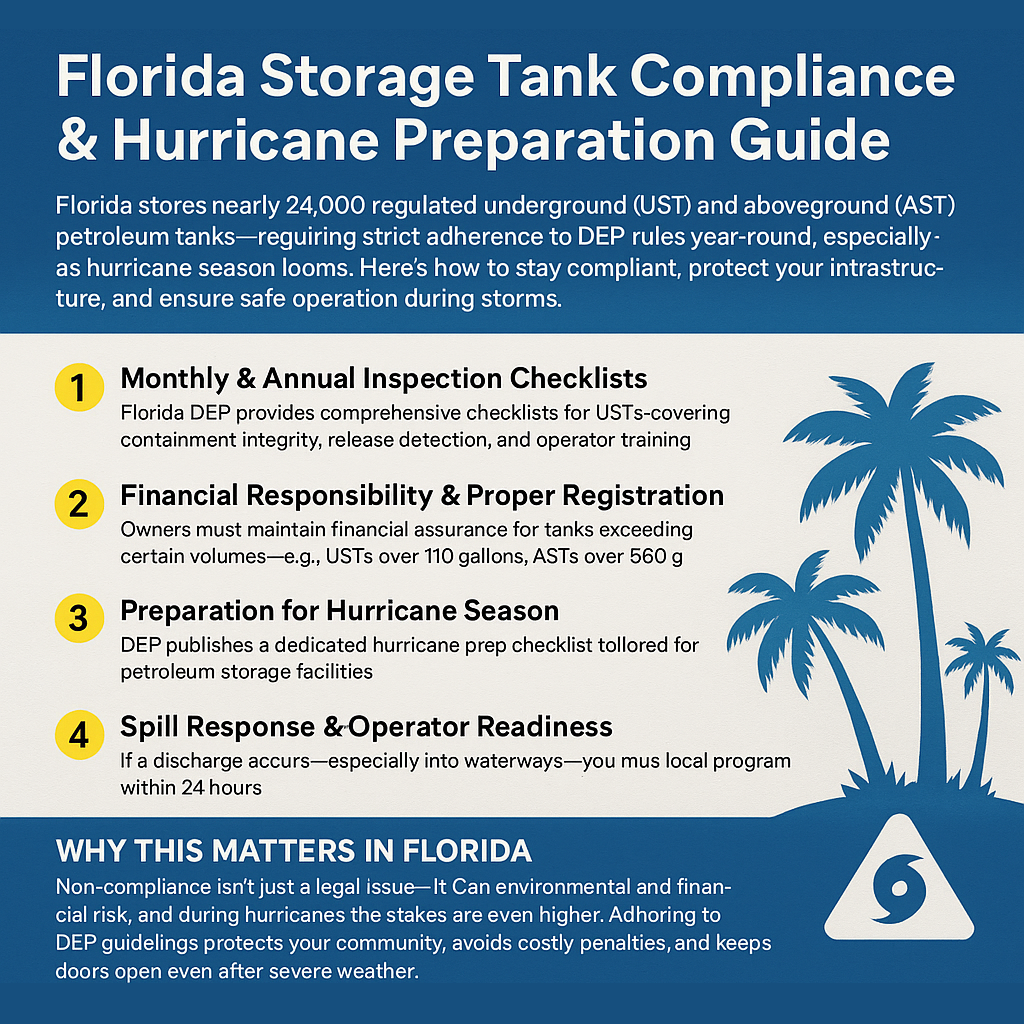0 Florida Storage Tank Compliance & Hurricane Prep Guide
- Petroleum Contractors
- by Jeffrey Burke
- 3-1-2025

Florida Storage Tank Compliance & Hurricane Preparation Guide
Florida stores nearly 24,000 regulated underground (UST) and aboveground (AST) petroleum tanks—requiring strict adherence to DEP rules year-round, especially as hurricane season looms. Here’s how to stay compliant, protect your infrastructure, and ensure safe operation during storms.
1. Monthly & Annual Inspection Checklists
Florida DEP provides comprehensive checklists for USTs and ASTs—covering containment integrity, release detection, and operator training. Regularly following these checklists keeps your site inspection-ready and helps prevent leaks or regulatory violations.
2. Financial Responsibility & Proper Registration
Owners must maintain financial assurance for tanks exceeding certain volumes—e.g., USTs over 110 gallons, ASTs over 550 gallons. This ensures there are funds on hand for leak remediation or third-party damages. Exemptions exist but require proper oversight.
3. Preparation for Hurricane Season
The DEP publishes a dedicated hurricane prep checklist tailored for petroleum storage facilities. It covers securing containment areas, shutting off emergency systems, removing spill materials, and ensuring proper discharge plans are in place.
4. Spill Response & Operator Readiness
If a discharge occurs—especially into waterways—you must contact your local program within 24 hours, notify the state watch office, and begin investigations within two weeks. It’s critical to train staff ahead of time on incident notification protocols.
Why This Matters in Florida
Non-compliance isn't just a legal issue—it's an environmental and financial risk, and during hurricanes, the stakes are even higher. Adhering to DEP guidelines protects your community, avoids costly penalties, and keeps doors open even after severe weather.
